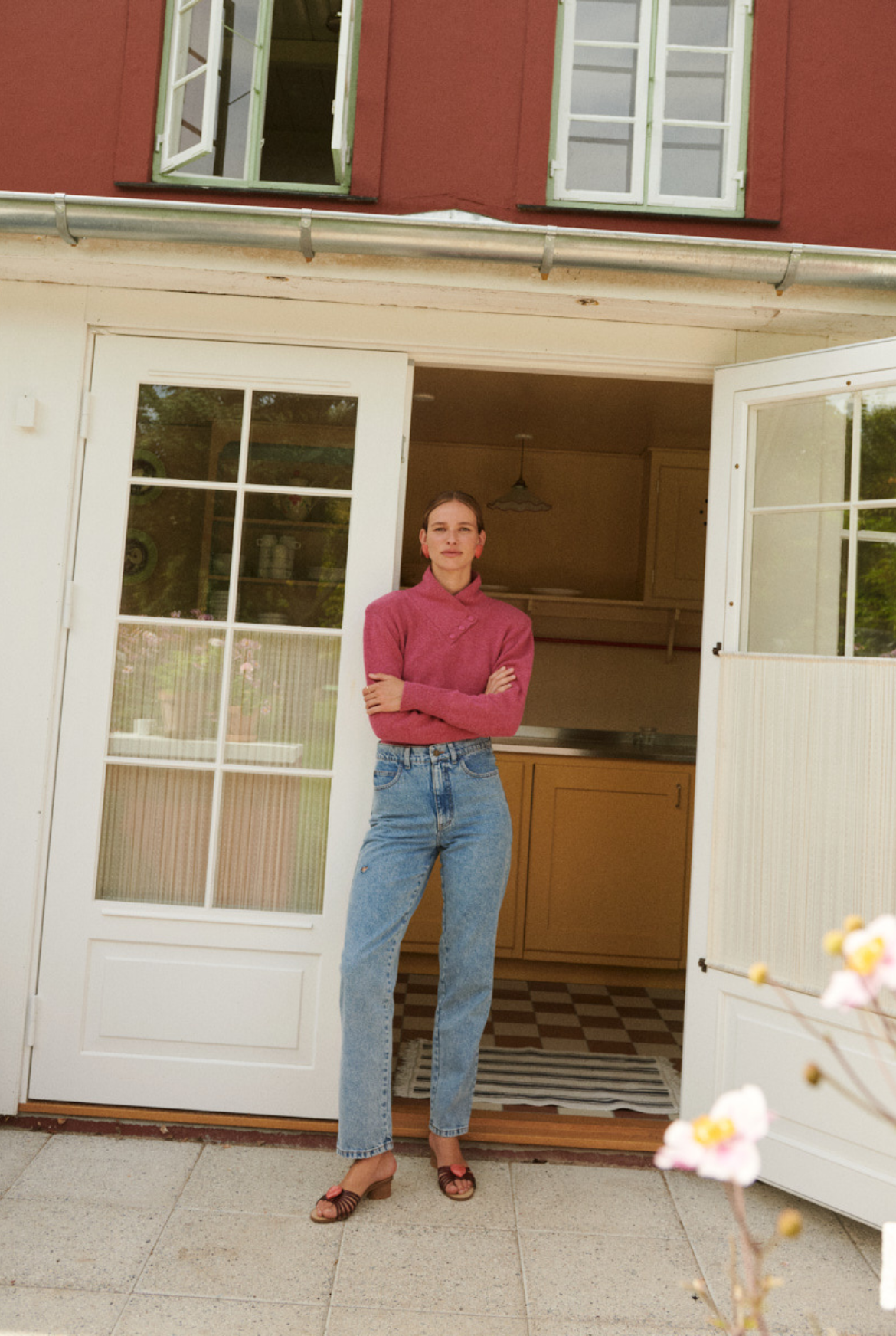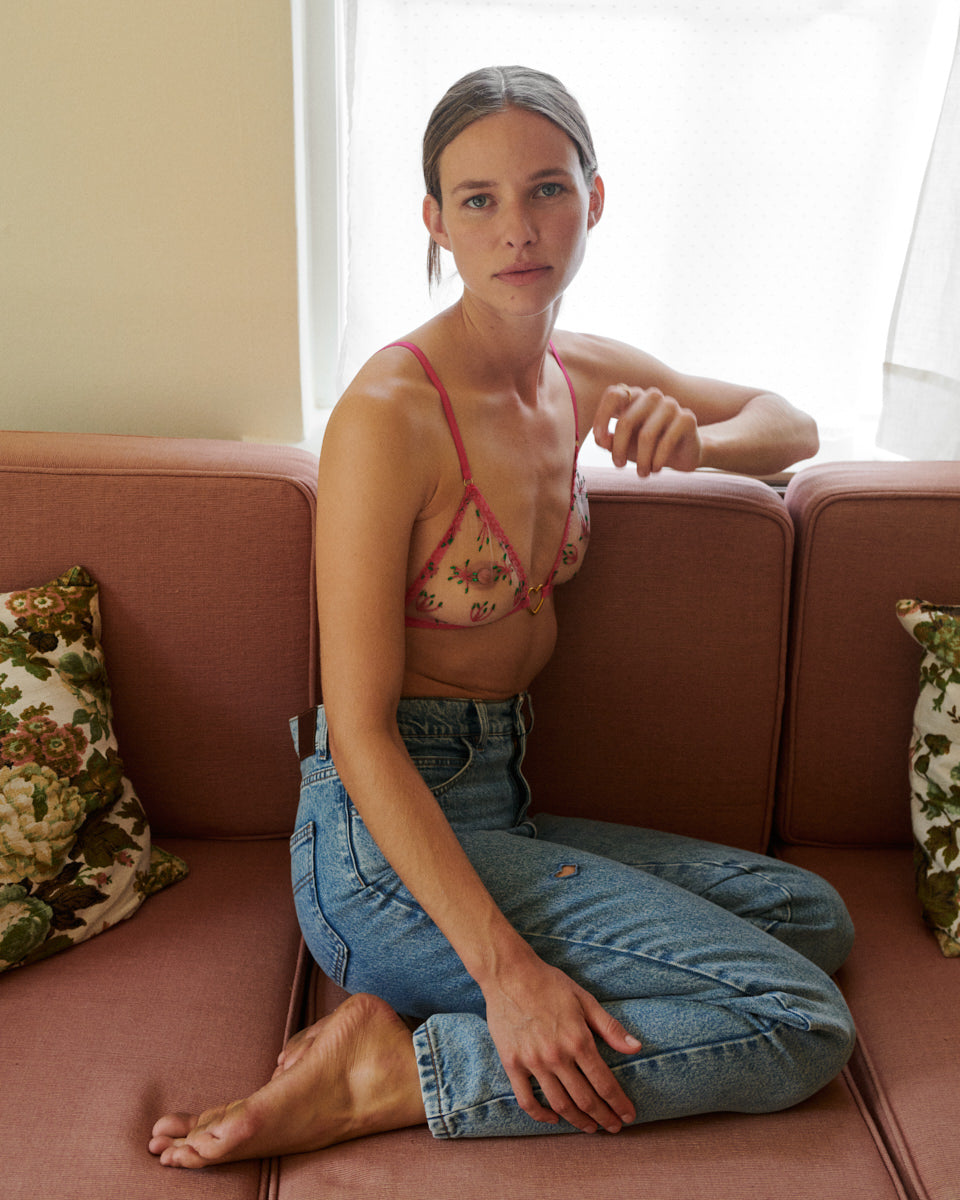Our Mission
At Le Petit Trou, we focus on growth while minimizing our impact on the planet.Each season, we carefully plan our inventory based on orders and sales data. This helps us adjust production to reduce waste and, thanks to local manufacturing, restock monthly when needed. This way, we offer a curated selection for our loyal customers without overproducing or harming the environment.
Production Process
We are dedicated to creating sustainable products. Our items are made in Poland from natural materials like linen, cotton, and recycled polyester. We also use recycled threads in some embroidery. While lingerie isn’t typically seen as sustainable, we’re always looking for ways to make our collections more eco-friendly.
Packaging
All our products are packed in compostable mailers made from corn starch. For gifts, we use eco-friendly cotton bags and recycled paper with biodegradable stickers. Each product arrives in a box made from recycled materials.Even for wholesale orders, we prioritize sustainability with compostable bags, helping reduce waste in large logistics centers.
Social Impact
We believe in empowering women, which is why our entire team is made up of strong, talented women. We also collaborate with women-led sewing companies, creating an environment where women lead change in business.
Sharing is Caring
Empathy, solidarity, and sisterhood are at the heart of Le Petit Trou, especially in tough times. In 2022, we donated all of our sales for a week to SOS Wioski Dziecięce and Polska Misja Medyczna to help women and children affected by the war in Ukraine. We also donated over 300 pieces of lingerie to Dom Samotnej Matki to support women from Ukraine.
In October, we raised awareness for breast cancer, donating 20% of sales from pink products to Stacja Czułość. In 2021, we created three pieces of lingerie from organic cotton, named after qualities of women fighting breast cancer—Strength, Courage, and Life. These items help raise awareness and provide support year-round.We also donated 10% of international sales to Fundacja Onkologiczna Alivia for breast cancer research and treatment. In 2024, we collaborated with Estée Lauder on a campaign to raise awareness for breast cancer.


LE PETIT TROU Denim
LUCAS jeans
The history of LUCAS jeans begins in Brazil. Any denim for its unique look needs first and foremost good cotton, and such is found in our trousers.
The yarn is made from cotton produced under the principles of BCI - Better Cotton Initiative - on plantations in Brazil. There it is grown and processed by the factory that produces our denim. It is one of the largest and best denim fabric factories in the world. Once our yarn hits the looms a denim fabric is created. The fabric from which our pants are made was created using less water through the Less water program . It is certified by ISO and oeko tex. It is in the ABR program - responsible Brazilian cotton.
Our already created fabric is wound on bales of about 100m carefully described, its production lot and shade is determined - all this is put on the label, which is very important in the production process (but about that a moment later) packed into a container and shipped to Europe.
Our bale of denim fabric, once selected by us, finally arrives at the sewing room - not so super easy - it weighs about 80kg. Here we start the whole process of manufacturing our pants. We must remember that the entire production is created from one flight and production shade, so that the entire production has an identical shade.
The fabric on the “raw” looks dark, hard and unwearable. It does not resemble our jeans in any way. Our beam goes to the cutting table - each pair of pants is made up of a dozen different “pieces”, which we have to properly cut and later sew together. Our pants are not usual - they have an additional decoration in the form of a heart, so at the very beginning we have to cut out the appropriate pieces. The legs on which we have a heart, after being cut out of the whole beam are transported to the embroidery shop - there our hearts are cut out and embroidered. We had to choose the right nothing to fit the pants and the right stitch thickness to make the embroidery durable. Once the hearts are embroidered we can meaningfully stitch the pants.
Here the whole process is divided into appropriate machines and teams. Separately, pockets are sewn on, someone else stitches the legs, someone else sews on the straps and yokes and stitches the legs together with the zippers. About 6/7 people work on one pair of pants. All sizes are properly numbered and go in the right order to the right people.
The jeans are already sewn, and now the most difficult process in trouser production begins - namely, decatization. The model you see in the store and the one we offer you is already subjected to the appropriate “washing” process.
Our pants have already been sewn, washed, decatized (given the proper shrinkage) and softened - we are at the very end. Now each pair of pants is ironed and goes to the finishing room. Each separately is inspected, the remnants of threads are cut off, as well as the cotton that “jerked out” during washing. We sew on all accessories, make holes, hit rivets and buttons.
We check once again that everything is of the highest possible quality. As you can see, the process of creating such pants is quite labor- and time-consuming - all these steps are performed in companies with Polish capital and employing workers with all the rules. The selection of our partners is very important so that we can give you a product that satisfies even the most demanding individuals.



